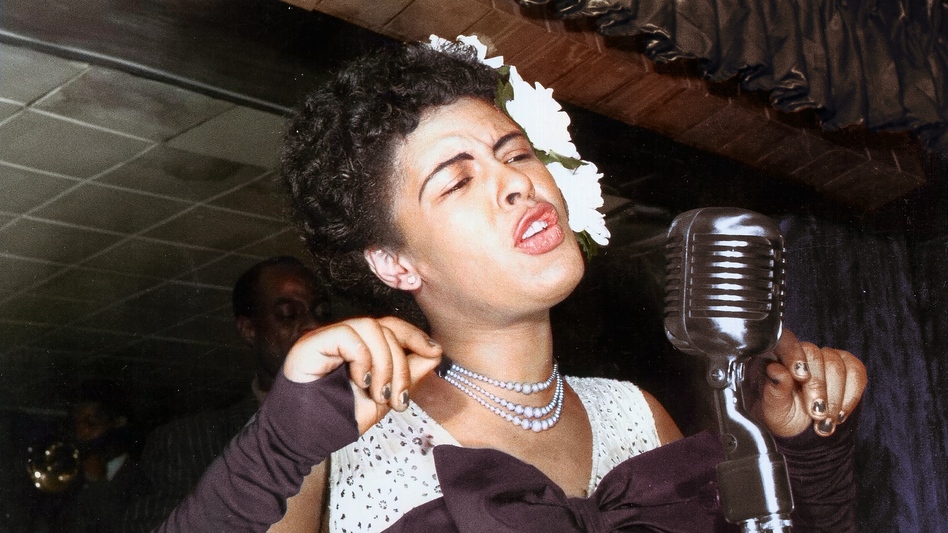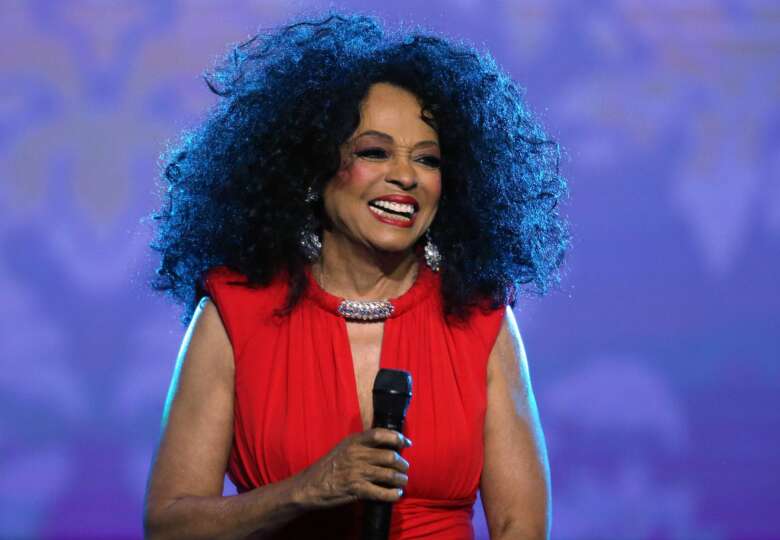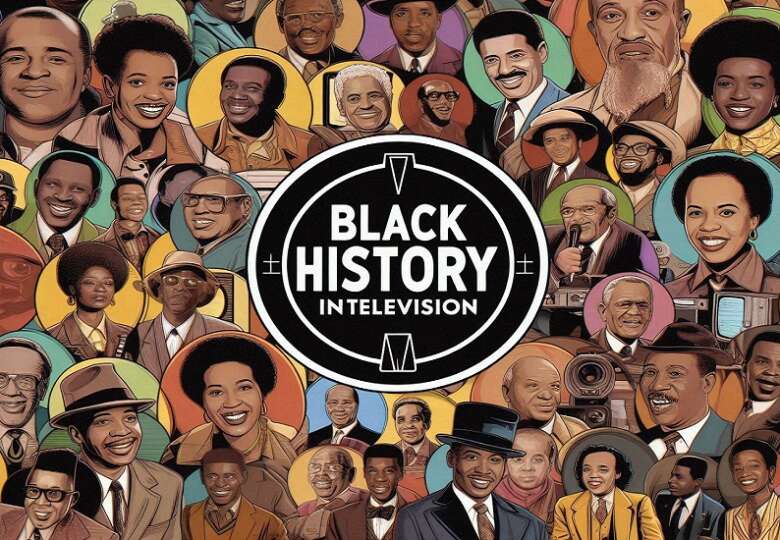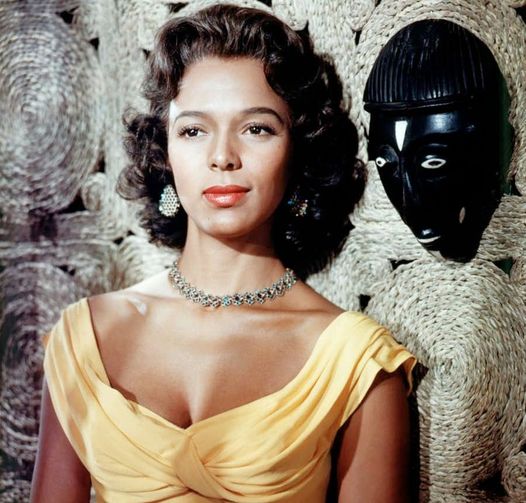Billie Holiday Part 1.
Billie Holiday, Born Eleanora Fagan, April 7, 1915 – July 17, 1959. Was an American jazz & swing music singer. Nicknamed, Lady Day, By her friend & music partner, Lester Young, Billie Holiday made a significant contribution to jazz music & pop singing. Her vocal style, Strongly influenced by jazz instrumentalists, inspired a new way of manipulating phrasing & tempo. She was known for her vocal delivery & improvisational skills. After a turbulent childhood, Billie began singing in nightclubs in Harlem, Where she was heard by producer John Hammond, Who liked her voice. She signed a recording contract with Brunswick in 1935. Collaborations with Teddy Wilson produced the hit, What a Little Moonlight Can Do, Which became a jazz standard. Throughout the 1930s & 1940s, Billie had mainstream success on labels such as Columbia & Decca. By the late 1940s, however, she was beset with legal troubles & drug abuse. After a short prison sentence, She performed at a sold out concert at Carnegie Hall. She was a successful concert performer throughout the 1950s with two further sold out shows at Carnegie Hall. Because of personal struggles & an altered voice, her final recordings were met with mixed reaction but were mild commercial successes. Her final album, Lady in Satin, was released in 1958. Holiday died of heart failure on July 17, 1959, At the age 44. Billie won four Grammy Awards, all of them posthumously, For Best Historical Album. She was inducted into the Grammy Hall of Fame & the National Rhythm & Blues Hall of Fame. In 2000, she was also inducted into the Rock & Roll Hall of Fame as an early influence, Their website states that “Billie Holiday changed jazz forever. She was named one of the 50 Great Voices by NPR, & was ranked fourth on the Rolling Stone list of, 200 Greatest Singers of All Time 2023. Several films about her life have been released, Most recently The United States vs. Billie Holiday released in 2021.
Billie Born (Eleanora Fagan) was born in Philadelphia to African American unwed teenage couple Clarence Halliday & Sarah Julia, Sadie, Fagan. Her mother moved to Philadelphia at age 19, After she was evicted from her parents’ home in the Sandtown Winchester neighborhood of Baltimore, Maryland, for becoming pregnant.
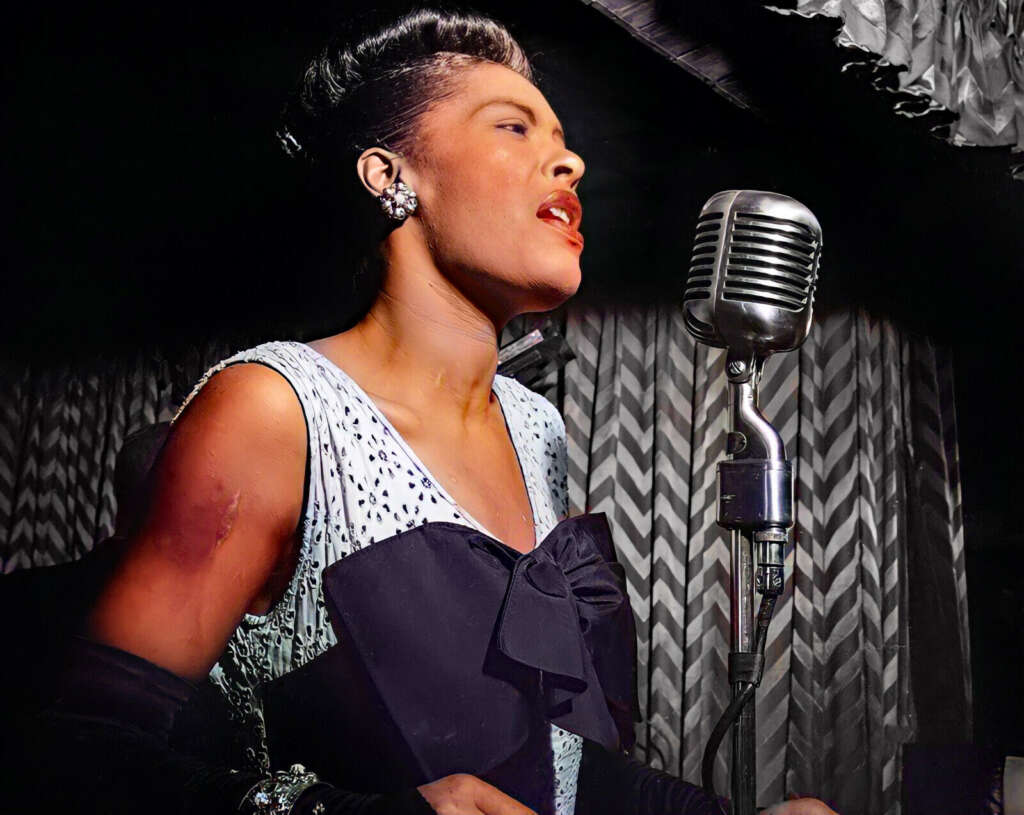
With no support from her parents, She made arrangements with her older, married half sister, Eva Miller, For Eleanora (Billie) to stay with her in Baltimore. Not long after Eleanora was born, Clarence abandoned his family to pursue a career as a jazz banjo player & guitarist. Some historians have disputed Billie Holiday’s paternity, As a copy of her birth certificate in the Baltimore archives lists her father as, Frank DeViese. Other historians consider this an anomaly, probably inserted by a hospital or government worker. DeViese lived in Philadelphia, & Sadie, then known by her maiden name Harris, May have met him through her work. Harris married Philip Gough in 1920, But the marriage only lasted a few years. Eleanora (Billie) grew up in Baltimore & had a very difficult childhood. Her mother often took what were then known as transportation jobs, Serving on passenger railroads. Billie was raised largely by Eva Miller’s mother in law, Martha Miller, & suffered from her mother’s absences & being in others’ care for her first decade of life. Billie’s autobiography, Lady Sings the Blues, published in 1956, is inconsistent regarding details of her early life, But much was confirmed by Stuart Nicholson in his 1995 biography of the singer.
Billie frequently skipped school which resulted in her being brought before the juvenile court at age nine. She was sent to the House of the Good Shepherd, A Catholic reform school for girls, Where the nuns locked her in a room with a dead girl overnight as punishment for misbehavior. The experience traumatized her, & for years she would Dream about it & wake up hollering & screaming. After nine months, She was released on October 3, 1925, to her mother. Sadie had opened a restaurant, The East Side Grill, & mother & daughter worked long hours there. She dropped out of school at age 11.
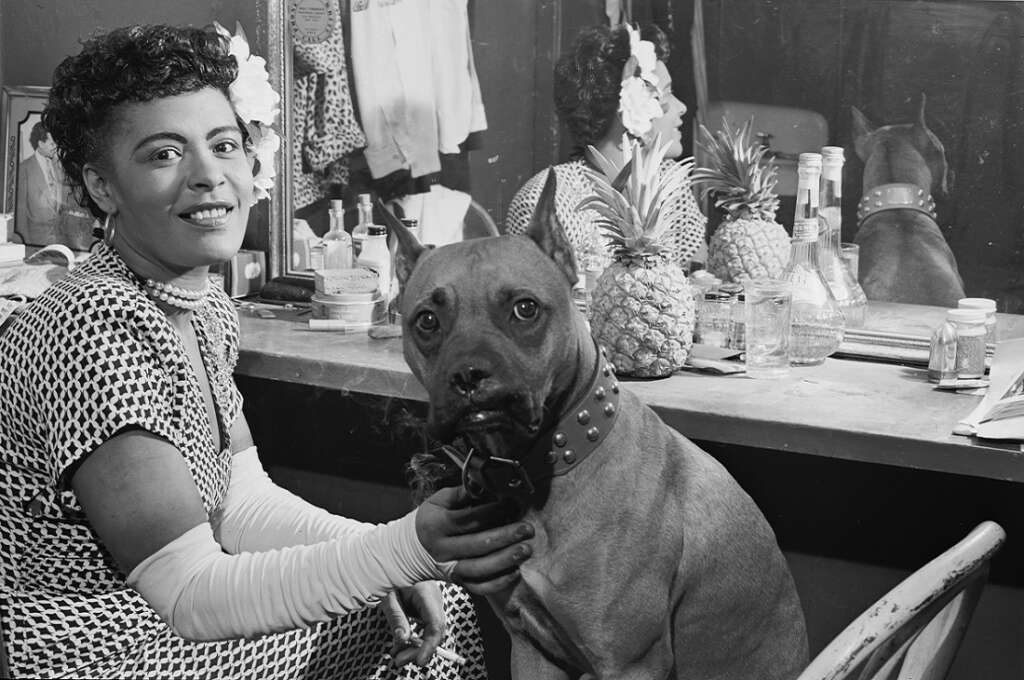
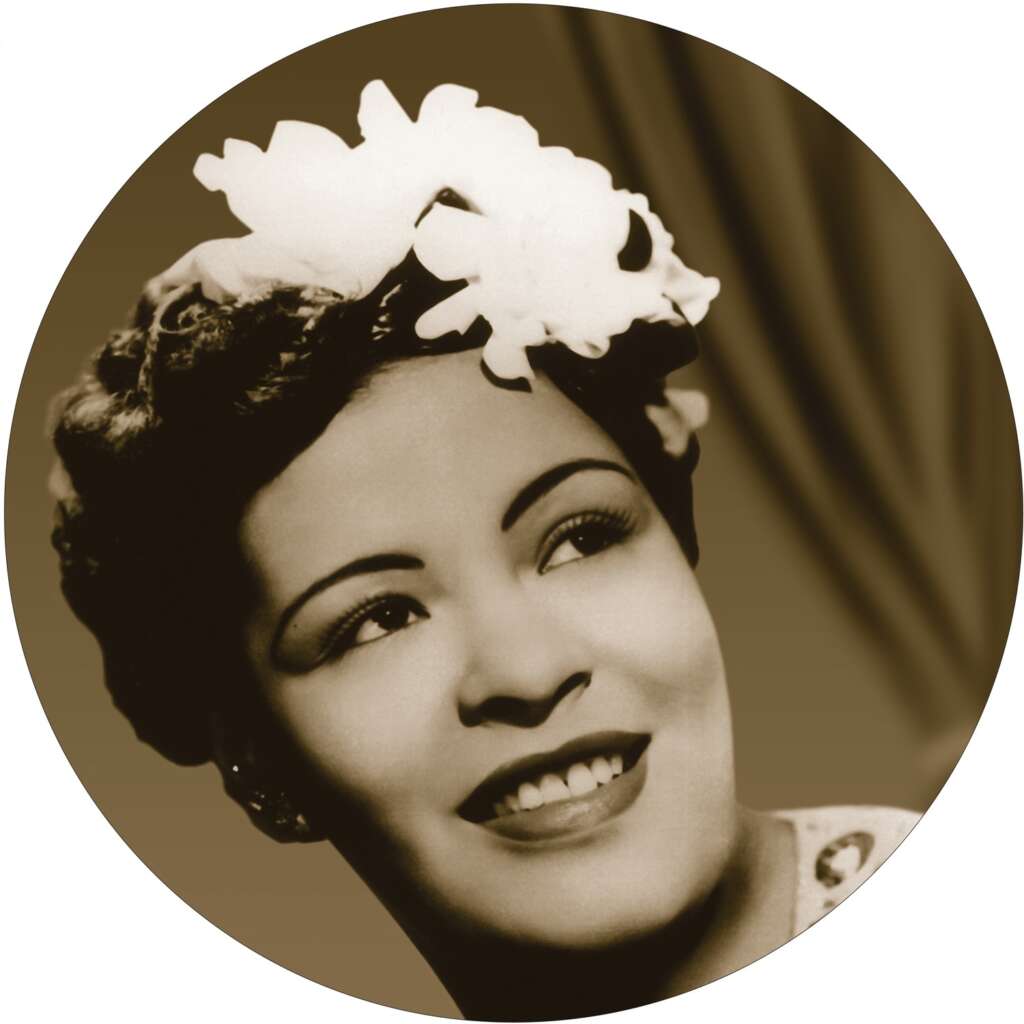
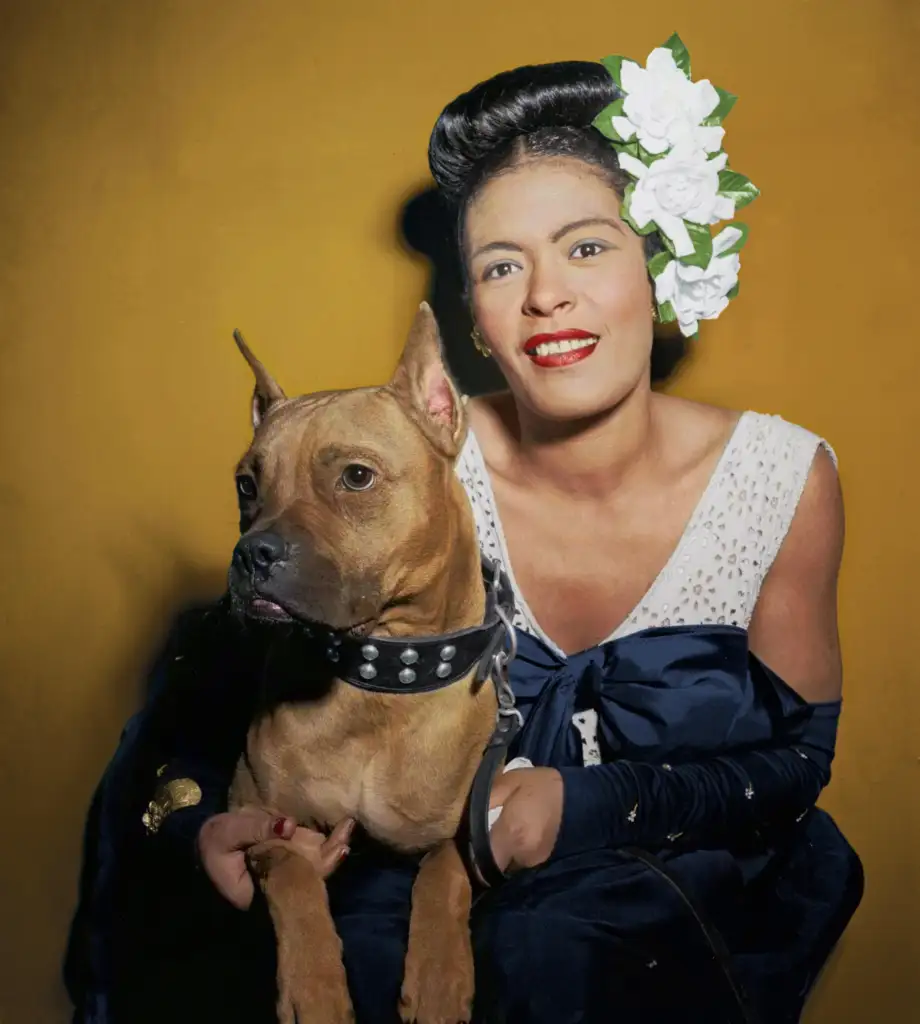
On December 24, 1926, Sadie came home to discover a neighbor attempting to rape Billie. She successfully fought back, & he was arrested. Officials sent Billie to the House of the Good Shepherd under protective custody as a state witness in the rape case. Billie was released in February 1927, when she was nearly 12. She found a job running errands in a brothel, & she scrubbed marble steps as well as kitchen & bathroom floors of neighborhood homes. Around this time, she first heard the records of Louis Armstrong & Bessie Smith. In particular, Billie cited, West End Blues, As an intriguing influence, pointing specifically to the scat section duet with the clarinet as her favorite part. By the end of 1928, Billie’s mother moved to Harlem, New York, again leaving Billie with Martha Miller. By early 1929, Billie had joined her mother in Harlem.
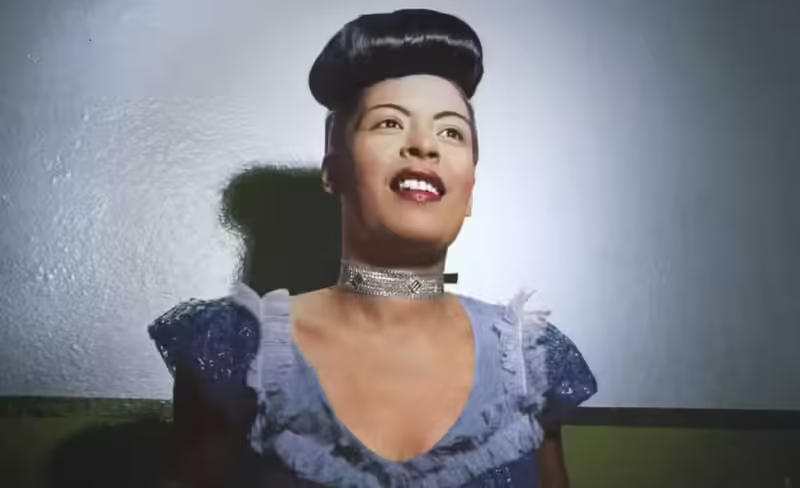
As a young teenager, Billie Holiday started singing in nightclubs in Harlem. She took her professional pseudonym name from Billie Dove, An actress she admired, & Clarence Halliday, Her probable father. At the outset of her career, she spelled her last name, Halliday, Her father’s birth surname, But eventually changed it to, Holiday, His performing name. The young singer teamed up with a neighbor, tenor saxophone player Kenneth Hollan. They were a team from 1929 to 1931, Performing at clubs such as The Grey Dawn, Pod’s & Jerry’s on 133rd Street, & The Brooklyn Elks Club. Benny Goodman recalled hearing Holiday in 1931 at The Bright Spot. As her reputation grew, she played in many clubs, Including the Mexico’s & The Alhambra Bar & Grill, Where she met Charles Linton, A vocalist who later worked with Chick Webb. It was also during this period that she connected with her father, who was playing in Fletcher Henderson’s Band.
Late in 1932, A 17-year-old Billie replaced the singer Monette Moore at Covan’s, a club on West 132nd Street. Producer John Hammond, who loved Moore’s singing & had come to hear her, first heard Holiday there in early 1933. Hammond arranged for Billy Holiday to make her recording debut at age 18, In November 1933, with Benny Goodman. She recorded two songs. Your Mother’s Son In Law, &, Riffin’ The Scotch, The latter being her first hit. Son in Law, Only sold 300 copies, &, Riffin’ the Scotch, released on November 11, Sold 5,000 copies. Hammond was impressed by Billie’s singing style & said of her, (Her singing almost changed my music tastes & my musical life, because she was the first girl singer I’d come across who actually sang like an improvising jazz genius.) Hammond compared Holiday favorably to Armstrong & said she had a good sense of lyric content at a young age. In 1935, Billie Holiday had a small role as a woman abused by her lover in Duke Ellington’s musical short film Symphony in Black. A Rhapsody Of Negro Life. She sang, Saddest Tale, in her scene.
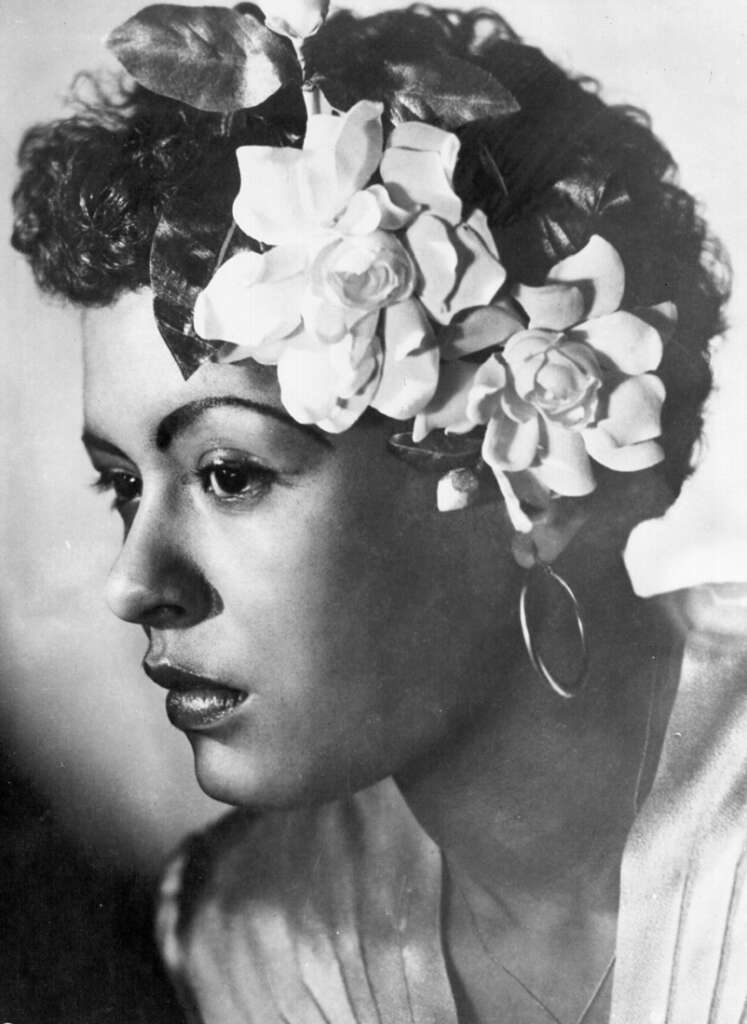
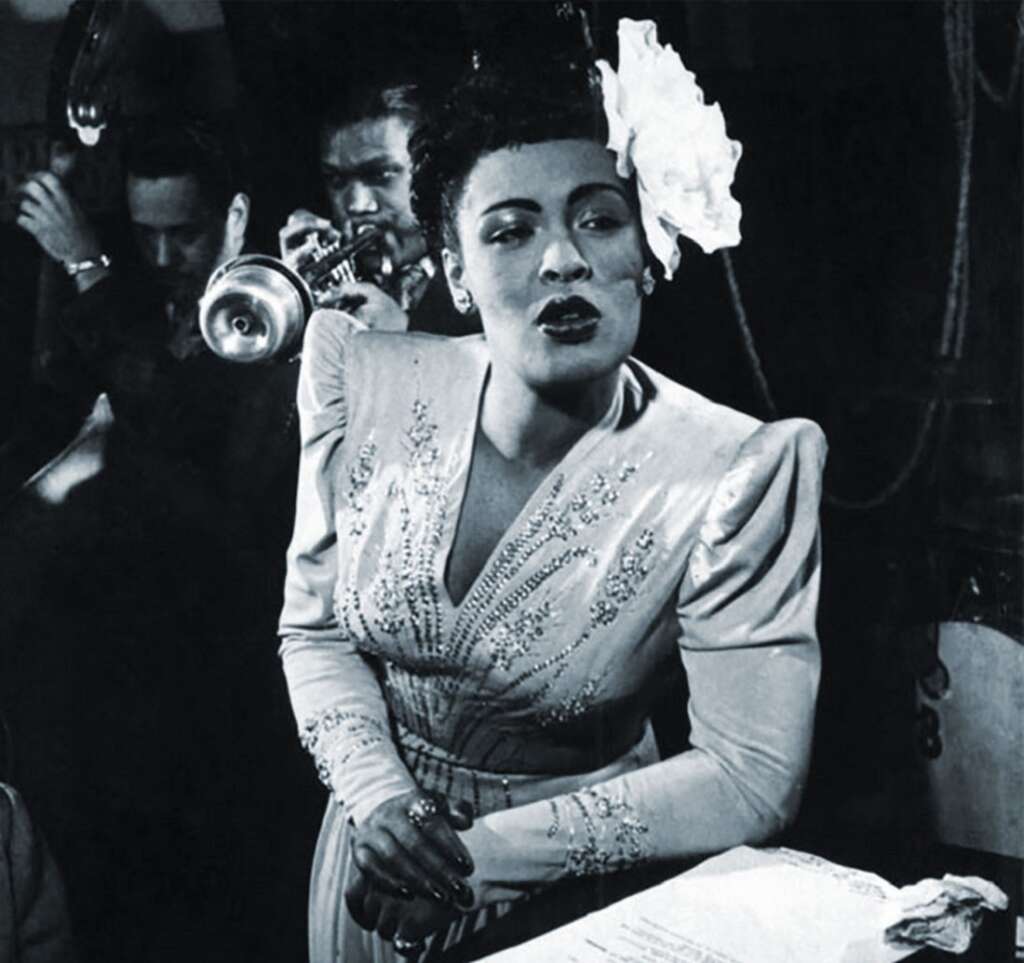
In 1935, Billie Holiday was signed to Brunswick by John Hammond to record pop tunes with pianist Teddy Wilson in the swing style for the growing jukebox trade. They were allowed to improvise on the material. Billie’s improvisation of melody to fit the emotion was highly skillful. Their first collaboration included, What a Little Moonlight Can Do, &, Miss Brown to You. What a Little Moonlight Can Do, has been deemed her, Claim To Fame. Brunswick did not favor the recording session because producers wanted Billy to sound more like Cleo Brown. However, after, What a Little Moonlight Can Do, was successful, the company began considering Billie an artist in her own right. She began recording under her own name a year later for Vocalion in sessions produced by Hammond & Bernie Hanighen. Hammond said the Wilson Holiday Records from 1935 to 1938 were a great asset to Brunswick. According to Hammond, Brunswick was broke & unable to record many jazz tunes. Wilson, Billie, Young, & other musicians came into the studio without written arrangements, reducing the recording cost. Brunswick paid Billie a flat fee rather than royalties, which saved the company money. I Cried for You, sold 15,000 copies, which Hammond called, A giant hit for Brunswick. Most records that made money sold around three to four thousand copies. Another frequent accompanist was tenor saxophonist Lester Young, who had been a boarder at her mother’s house in 1934 & with whom Billie had a rapport. Young said, (I think you can hear that on some of the old records, you know. Some time I’d sit down & listen to ’em myself, & it sound like two of the same voices. or the same mind, or something like that.) Young nicknamed her, Lady Day, & she called him, Prez.
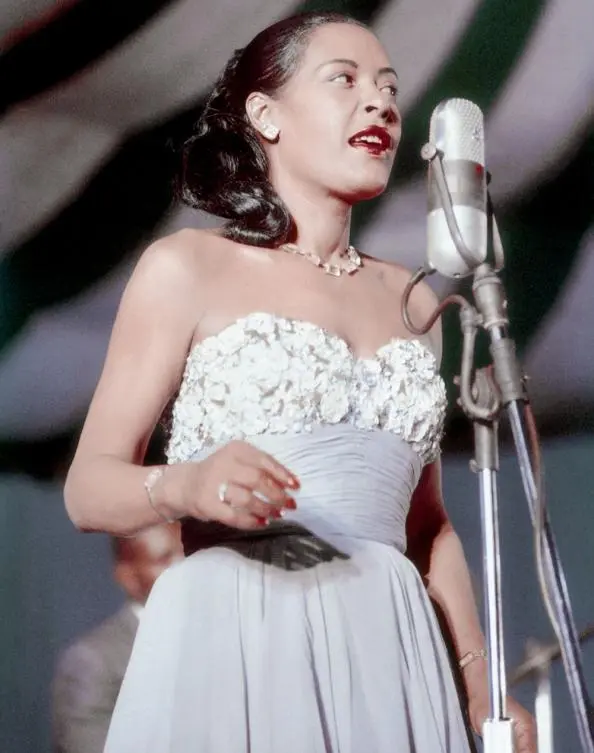
In late 1937, Billie Holiday had a brief stint as a big-band vocalist with Count Basie. The traveling conditions of the band were often poor, They performed many One Nighters in clubs, Moving from city to city with little stability. Billie Holiday chose the songs she sang & had a hand in the arrangements, Choosing to portray her developing persona of a woman unlucky in love. Her tunes included, I Must Have That Man, Travelin’ All Alone, I Can’t Get Started, &, Summertime, A hit for Billie Holiday in 1936, Originating in George Gershwin’s, Porgy & Bess the year before.
Count Basie became used to Billie Holiday’s heavy involvement in the band. He said, (When she rehearsed with the band, it was really just a matter of getting her tunes like she wanted them, because she knew how she wanted to sound & you couldn’t tell her what to do) Some of the songs Billie performed with Basie were recorded. I Can’t Get Started, They Can’t Take That Away from Me, &, Swing It Brother Swing, Are all commercially available. Billie was unable to record in the studio with Basie, but she included many of his musicians in her recording sessions with Teddy Wilson. Billie found herself in direct competition with the popular singer Ella Fitzgerald. The two later became friends. Ella Fitzgerald was the vocalist for the Chick Webb Band, Which was in competition with The Count Basie Band. On January 16, 1938, the same day that Benny Goodman performed his legendary Carnegie Hall jazz concert, the Basie & Webb bands had a battle at the Savoy Ballroom. Webb & Ella Fitzgerald were declared winners by Metronome magazine, while DownBeat Magazine pronounced Billie Holiday & Count Basie the winners. Ella Fitzgerald won a straw poll of the audience by a three to one margin.
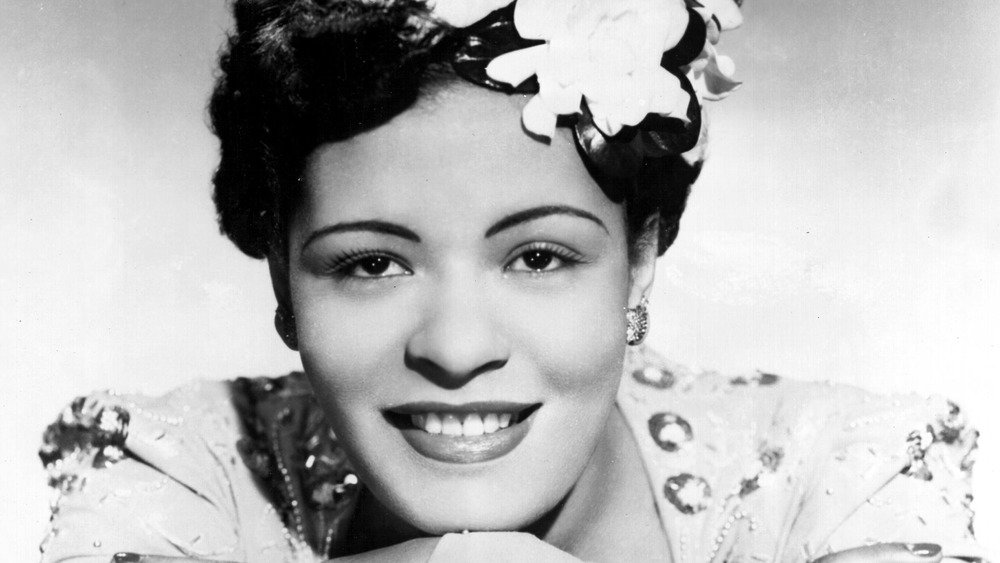
In February 1938, Billie Holiday stopped singing for Count Basie. Various reasons have been given for why she was fired. Jimmy Rushing, Count Basie’s male vocalist, Called her unprofessional. According to All Music Guide, Billie was fired for being, Temperamental & unreliable. She complained of low pay & poor working conditions & may have refused to sing the songs requested of her or change her style. Billie was hired by Artie Shaw a month after being fired from The Count Basie Band. This association placed her among The first black women to work with a white orchestra, an unusual arrangement at that time. This was also the first time a black female singer employed full time toured The segregated U.S. South with a White Bandleader. When Billie Holiday faced racism, Shaw would often stick up for his vocalist. In her autobiography, Billie Holiday describes an incident in which she was not permitted to sit on the bandstand with other vocalists because of racist policies. Shaw said to her, (I want you on the band stand like Helen Forrest, Tony Pastor & everyone else). When touring the South, Billie would sometimes be heckled by members of the audience. In Louisville, Kentucky, a man called her a, Nigger Wench, & requested she sing another song. Billie lost her temper & had to be escorted off the stage. In March 1938, Shaw & Billie had been broadcast on New York City’s powerful radio station WABC (the original WABC, now WCBS). Because of their success, they were given an extra time slot to broadcast in April, which increased their exposure. The New York Amsterdam News reviewed the broadcasts & reported an improvement in Billie Holiday’s performance. Metronome reported that the addition of Billie Holiday to Shaw’s band put it in the, Top Brackets. Billie Holiday could not sing as often during Shaw’s shows as she could in Count Basie’s, The repertoire was more instrumental, with fewer vocals. Shaw was also pressured to hire a white singer, Nita Bradley, with whom Billie did not get along but had to share a bandstand. In May 1938, Shaw won band battles against Tommy Dorsey & Red Norvo, with the audience favoring Billie Holiday. Although Shaw admired Billie’s singing in his band, saying she had a, Remarkable Ear, & a, remarkable sense of time, her tenure with the band was nearing an end. In November 1938, Billie Holiday was asked to use the service elevator at the Lincoln Hotel in New York City, instead of the one used by hotel guests, because white patrons of the hotels complained. This may have been the last straw for her. She left the band shortly after. Billie spoke about the incident weeks later, saying, (I was never allowed to visit the bar or the dining room as did other members of the band. &. I was made to leave & enter through the kitchen). There are no surviving live recordings of Billie Holiday with Shaw’s band. Because she was under contract to a different record label & possibly because of her race, Billie was able to make only one record with Shaw, Any Old Time. However, Shaw played clarinet on four songs she recorded in New York on July 10, 1936. Did I Remember?, No Regrets, Summertime, &, Billie’s Blues.
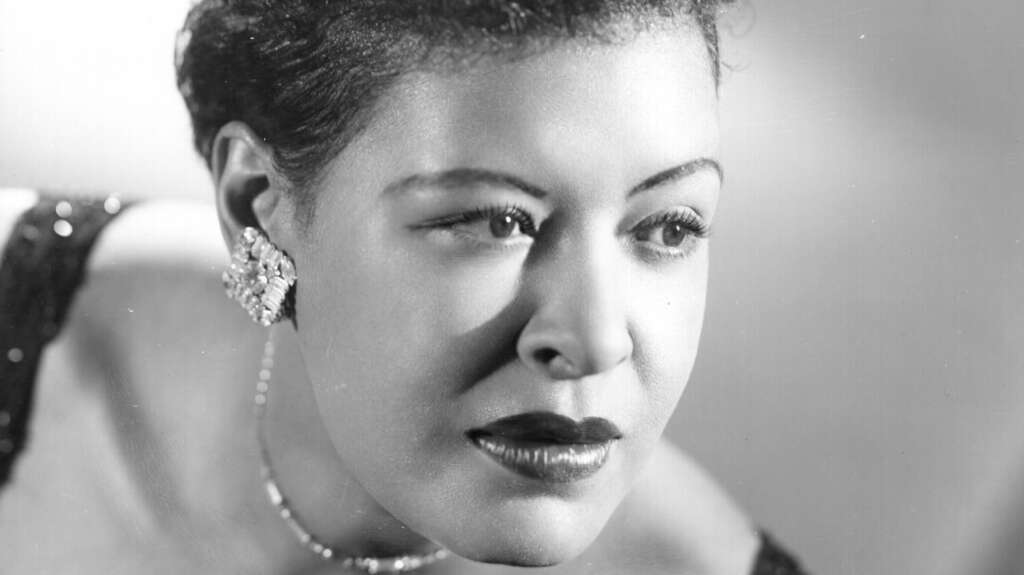
Coming to the end of the 1930s, Billie Holiday had scored a string of radio & retail hits with Teddy Wilson, & became an established artist in the recording industry. Her songs, What a Little Moonlight Can Do, &, Easy Living, Were imitated by singers across America & were quickly becoming jazz standards. In September 1938, Billie’s single, I’m Gonna Lock My Heart, ranked sixth as the most played song that month. Her record label, Vocalion, Listed the single as its fourth best seller for the same month, & it peaked at Number 2 on the pop charts, according to Joel Whitburn’s Pop Memories. 1890 to 1954.
